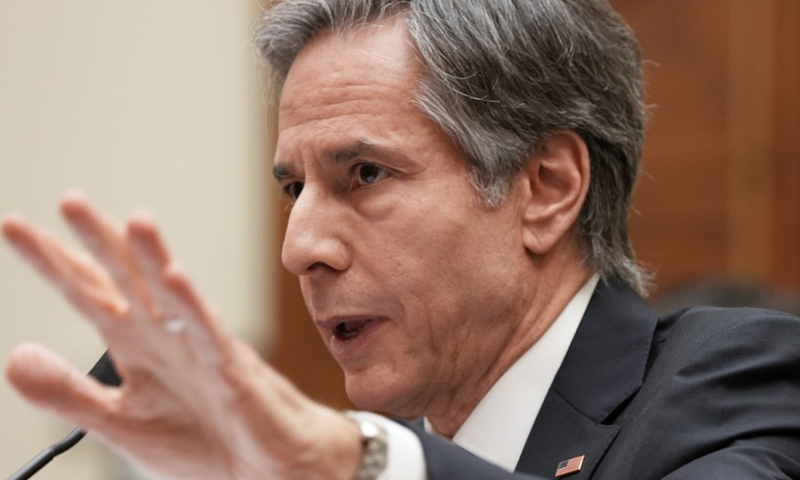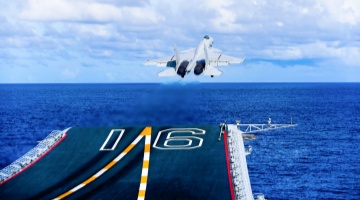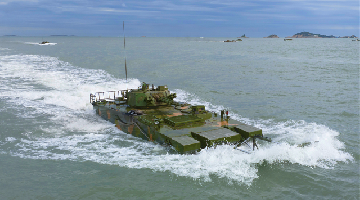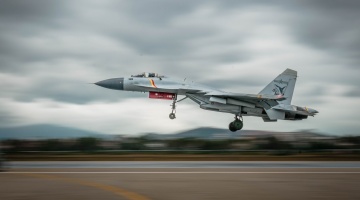
By Chen Hong
Just when the US and the West are continuing to incite and hype the crisis of the Russian-Ukrainian military confrontation, US Secretary of State Antony Blinken traveled hastily to Australia on February 7. During his seven-day Asia-Pacific visit, Blinken would hold a series of high-level talks in Australia, Fiji and Hawaii. In addition to meeting with Australian Prime Minister Scott Morrison and convening the foreign ministers' meeting among the US, Japan, Australia and India, and the foreign ministers' meeting among the US, Japan and South Korea, the highlight of Blinken's trip is to meet with leaders of 18 island countries in Fiji. Blinken said before the trip that he hoped the Pacific island countries would join the US to "raise our ambition in the region" .
It is evident that the Pacific has in fact become a priority in the US's global diplomacy and security strategy. The ultimate goal of this tactical operation is to hedge against China's peaceful development and cooperation in the Asia-Pacific region. According to a senior US government official, the Biden administration plans to launch a new Pacific Islands initiative with its allies and partners to strengthen linkages and cooperation with countries in the region.
Therefore, Blinken's visit to Fiji has a very distinct strategic goal. On the one hand, Blinken keeps saying that he will help the island countries improve their goals on issues such as climate, ocean, and transportation. On the other hand, however, Blinken uses ideology to guide and plan the relationship between the US and the South Pacific island countries, requiring the island countries to find ways to further "our shared commitment to democracy, regional solidarity and prosperity" .
In recent years, the US has led Australia and other countries to move frequently in the Pacific region, focusing on strengthening the overall influence of the US and the West on the South Pacific island countries. Their goal is to crowd out, contain and suppress the mutually beneficial cooperation between China and other countries in the region in politics, economy, society, culture and education.
Since 2017, under the guidance of the US "Indo-Pacific Strategy" that targets China, Australia has launched its "Pacific Step-up” plan and began to re-intensify its economic assistance in the South Pacific region. At the same time, Australia has continued to smear China's economic aid for Pacific island countries, the Belt and Road Initiative joint construction projects and other economic cooperation, and has repeatedly obstructed and undermined the local infrastructure investment and construction activities by Chinese companies. Under pressure from the US, New Zealand has also formulated a corresponding plan “Pacific Reset ”.
The governments and people of the Pacific island countries welcome and appreciate the assistance and cooperation from China. The roads, ports, schools, hospitals, cultural venues and other facilities that China has assisted and invested in the island countries have directly improved the local economy and people's lives. Chinese State Councilor and Foreign Minister Wang Yi presided over the first China-Pacific Island Countries Foreign Ministers' Meeting via videolink in October last year, which achieved fruitful results.
For the US and Australia and other countries, this is like bone in the throat. Against this background, politicians in Washington and Canberra see the Pacific island nations as a battleground against China. According to a senior US official, Blinken will also sign a Compact of Free Association (COFA) with the Marshall Islands, the Federated States of Micronesia and Palau during meetings with leaders of the three countries to advance US's military access. Moreover, under the inducement of the US, Palau has proposed that the US can establish a military base in Palau, and even send the US Coast Guard to Palau. Under the banner of democracy, the practice is to implement the reality of military hegemony. This is the essence of the US Pacific strategy.
In January, the US Coordinator for Indo-Pacific Affairs on the National Security Council Kurt Campbell claimed that the Pacific region could become a region for "strategic surprise". Is he implying that Washington may be promoting some kind of unexpected contingencies in the region? If Campbell really meant something, Blinken's trip to Fiji will become even more intriguing.
(The author is the director of the Australian Studies Centre and executive director of the Asia Pacific Research Center at East China Normal University)
Editor's note: This article is originally published on huanqiu.com, and is translated from Chinese into English and edited by the China Military Online. The information, ideas or opinions appearing in this article do not necessarily reflect the views of eng.chinamil.com.cn.









